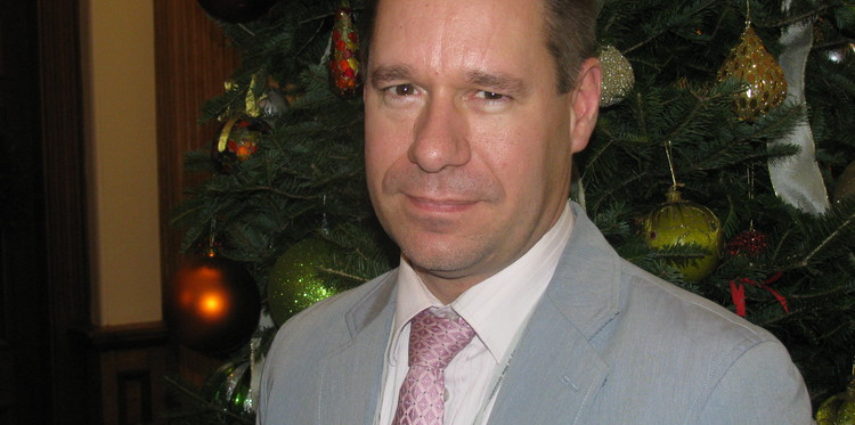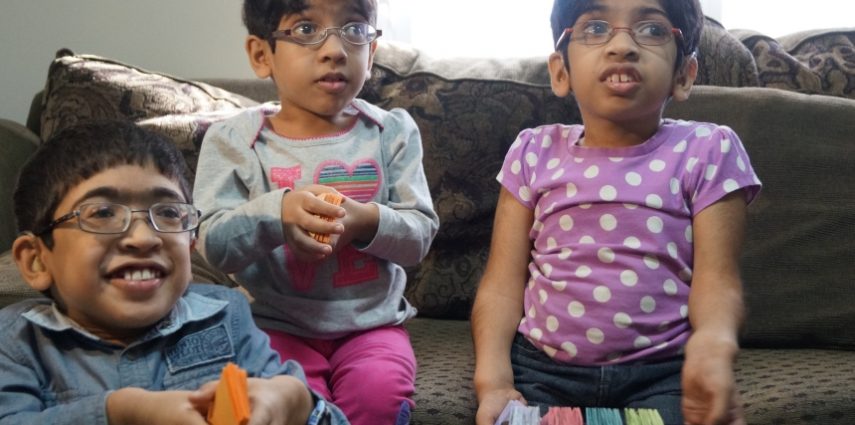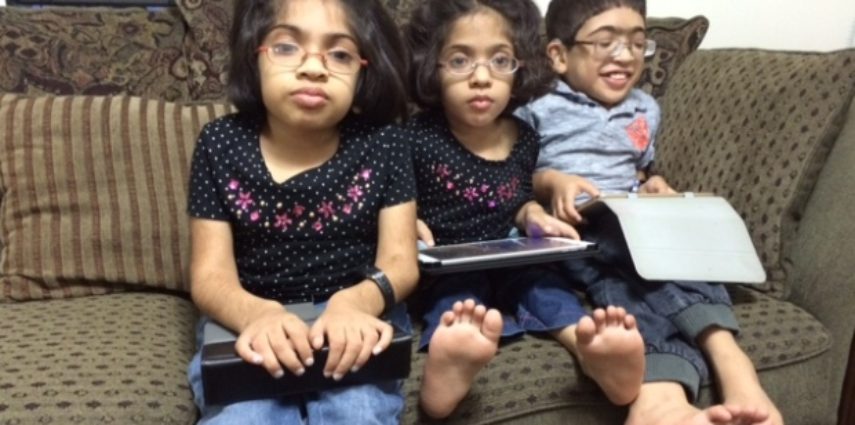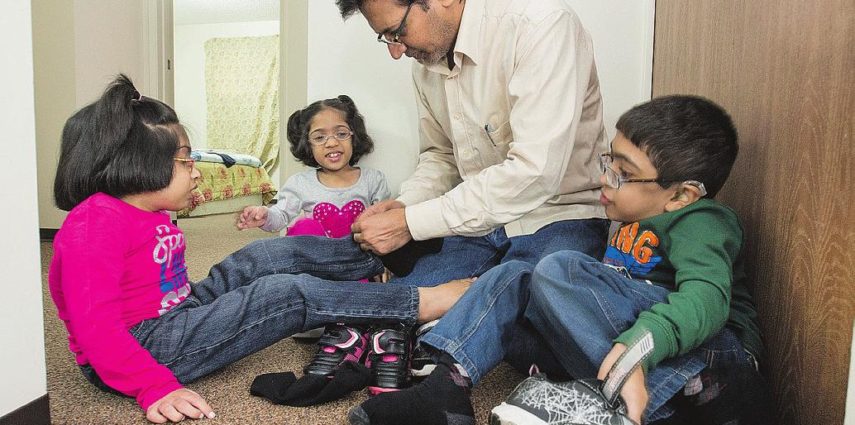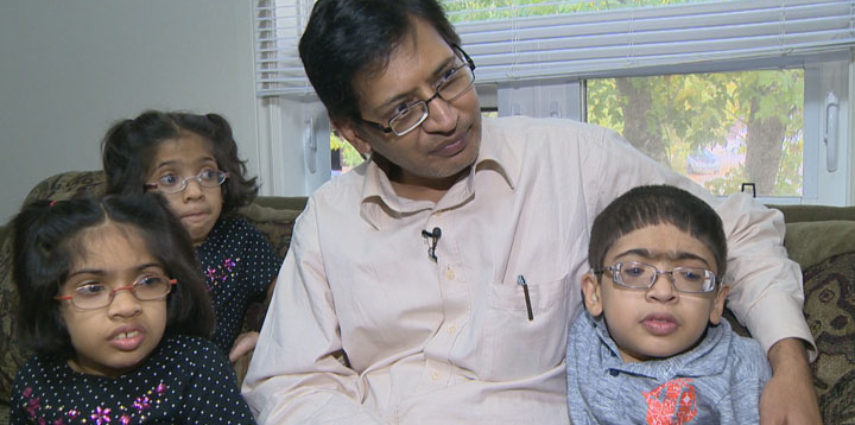Minister Refuses To Allow Renowned MPS Expert To Join Family Meeting; Doucet’s Family In Fredericton to Meet with Child And Youth Advocate Thursday
The family of ailing 10-year-old Morgan Doucet has cancelled a scheduled meeting with the Minister of Health in New Brunswick after the Minister refused to allow an internationally renowned expert to participate in the discussions. Doucet’s case has made headlines throughout the Province after the Minister of Health denied access to the life-saving drug that he requires. Morgan suffers from MPS IVA (Morquio Syndrome) and requires the life-saving treatment immediately in order to halt further progression of his devastating disease. Without access to therapy, Morgan faces a long and painful decline and death at a young age.
Andrew McFadyen, Executive Director of The Isaac Foundation, an advocacy, research, and family support organization that specializes in MPS related diseases, has slammed the Minister for his refusal to meet with one of the world’s foremost experts in MPS and related diseases. “It’s unconscionable to me that Minister Boudreau would refuse to allow this expert to participate in the meeting he had scheduled with Morgan’s family. Unbelievable, really. He has denied Morgan access to the life-saving medication he needs, hasn’t allowed his family an avenue to appeal his ruling, and then refuses to hear from a true expert that deals with this disease on a daily basis – an expert who is internationally recognized as the best in his field. It leads me to believe that he’s afraid to be proven wrong on such an important issue, which is deplorable because a life hangs in the balance. Pride and politics should never play a role in the health and well being of a child, and it appears that’s exactly what is happening with Morgan Doucet with respect to the Minister’s steadfast refusal to hear more evidence on this matter.”
Doucet’s parents will be joined McFadyen at the provincial legislature in Fredericton on Thursday, December 17 to watch the morning legislative session and to meet with the province’s Child and Youth Advocate, Norman Bosse. PC Jake Stewart, the Doucets’ MLA, will join the family during that meeting.
Bosse has agreed to look into the process used to deny access to Morgan’s medication, a process that McFadyen says was destined to return a negative decision all along. He notes that after an initial application for treatment in October of 2014, the file was finally sent to Ontario for review by one individual alone, with no opportunity allowed for a rigorous discussion with the rest of the MPS Experts throughout Canada and Internationally –experts that deal with the disease on a daily basis and some of whom have seen first-hand how well other children receiving the treatment are doing.
“The Minister and the Ministry’s only comment on this case is that the drug didn’t get a positive review from the Common Drug Review (CDR). What he doesn’t say is that all drugs used to treat other MPS diseases have received negative CDR reviews and the Province pays for access to all. Right now, Morgan is the only MPS patient in the province who has been denied this coverage, and that’s disgraceful.”
Health Canada approved the treatment Morgan requires in July of 2014 and it has been recommended for use in patients by the Canadian Expert Opinion on Morquio Syndrome. In addition, the International Expert Opinion on Morquio Syndrome considers the treatment their gold standard of care for patients throughout the world. It is reimbursed for patients in Saskatchewan, Ontario, and Quebec.
In Canada, there are 33 patients receiving the treatment. According to McFadyen, all of them are doing exceptionally well. “These patients have seen dramatic improvements and have had their disease progression either halted or dramatically slowed down. Morgan deserves the same chance at life that those other patients have. This is Canada – where equal access to our health care system isn’t a privilege, it’s a right.It’s callous and cruel that the Minister of Health is forcing this child and this family to enter a palliative approach to his disease when we know he can be helped. We know he can be saved.”
Jamie Myrah, Executive Director of the Canadian MPS Society, a national patient association that serves those affected by MPS and related lysosomal diseases, says Doucet’s case has angered and galvanized the people of New Brunswick. Doucet was front-page news on Monday, and has been featured by numerous provincial and national media outlets since his treatment was denied. The Isaac Foundation’s online posts about Morgan have received over 100,000 visitors during that time, and hundreds of emails have been sent to the Premier and the Minister of Health supporting access for Morgan. McFadyen has posted an online form that the people can fill out and all messages get delivered instantly to the Minister’s and the Premier’s email inbox.
“People in New Brunswick and across Canada are understandably upset about this decision and they want their voices heard,” says Myrah.
McFadyen finishes, “We won’t accept the Minister making medical decisions and overruling and contradicting medical experts, clinicians, and researchers regarding best practice and treatment for Morgan Doucet. If he won’t look at the clinical expert opinion, the patient reported outcomes or the peer-reviewed published journals, then who will he listen to?”
Both The Isaac Foundation and The MPS Society are renewing their call for Health Minister Victor Boudreau and Premier Brian Gallant to take action, review and reverse their initial decision, and to ensure that treatment begins immediately for Morgan Doucet.
# # #
The Doucet Family and The Isaac Foundation will be available for interested media at the Legislature on Thursday, December 17. To schedule an interview with Andrew McFadyen, please call Andrew at 613-328-9136 or email Andrew at mcfadyena@me.com. The Isaac Foundation can also arrange interviews with parents of patients currently receiving this treatment in Canada.
BACKROUNDER
While not a cure for Morquio Syndrome, the necessary Enzyme-Replacement Therapy (ERT) is designed to provide patients with a synthetic version of the enzyme they are lacking by infusing small doses into the patient’s bloodstream on a weekly basis. The treatment slows down or halts progression of the disease in patients, improves endurance, walking distance, breathing problems, and provides other benefits to sufferers that dramatically improve their quality and length of life. International experts and a Canadian Panel of Genetics Specialists have all recommended Vimizim as the front-line treatment for Morquio Syndrome. Vimizim was approved by Health Canada in July 2014, and is currently being reimbursed for use by patients in Saskatchewan, Ontario, and Quebec. Recently, the National Institute for
Photo Source: CBC.ca



